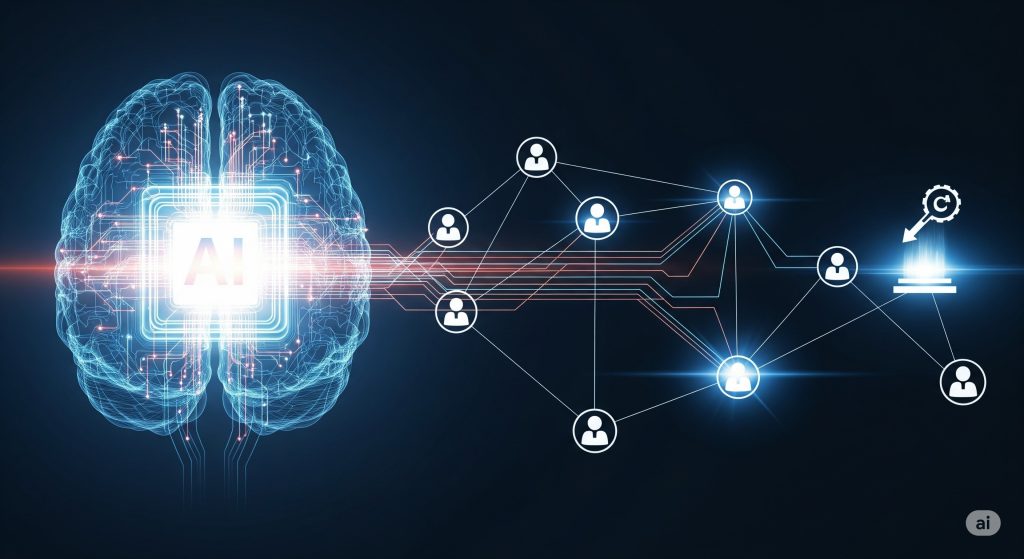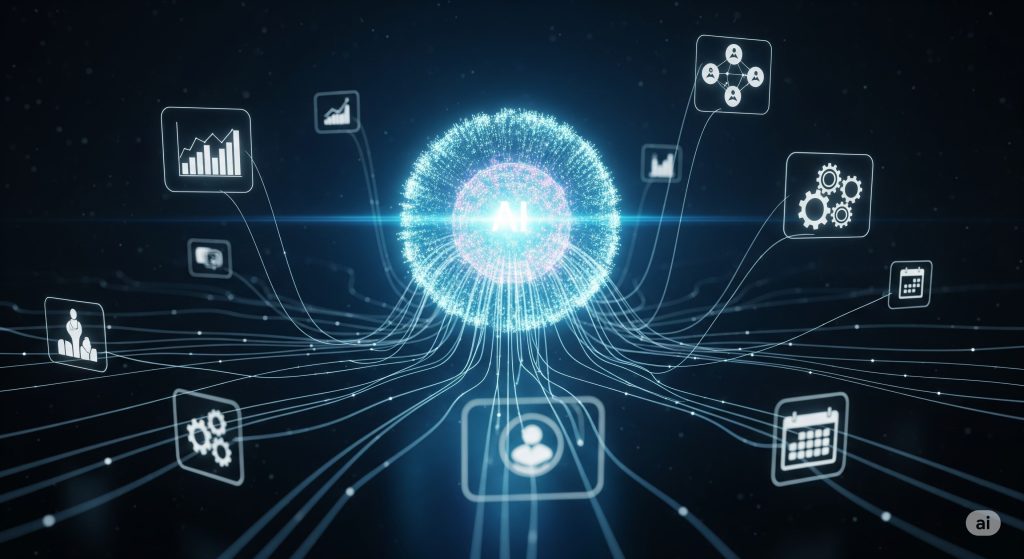Imagine a world where machines not only assist us but operate independently, making decisions without human intervention. AI Autonomous Agency is revolutionizing this vision, marking a significant leap in AI technology. As systems evolve to learn and adapt autonomously, they promise remarkable benefits, including enhanced efficiency and cost savings. This blog will explore the transformative impact of AI Autonomous Agency on business operations, ethical considerations, and the future of work. By understanding its potential and challenges, you’ll gain insights into how this technology can reshape industries and redefine our roles in the workforce. Join us on this journey!
The Evolution of AI Technology
AI technology has undergone a remarkable transformation over the years, evolving from simple rule-based systems to sophisticated autonomous agents capable of learning and decision-making. This evolution is driven by advancements in machine learning, neural networks, and data processing capabilities. As AI systems become more autonomous, they can perform tasks that were once thought to be the exclusive domain of humans. This shift is not just about technological progress but also about redefining how we interact with machines and the potential they hold for transforming industries.
Understanding AI Autonomous Agency
AI Autonomous Agency refers to systems that can operate independently, making decisions without human intervention. These systems are designed to learn from their environment, adapt to new situations, and execute tasks autonomously. The core of this concept lies in the ability of AI to process vast amounts of data, recognize patterns, and make informed decisions. This capability is what sets AI Autonomous Agency apart from traditional automation, which relies on pre-defined rules and human oversight.
Key Benefits of AI Autonomous Agency
The benefits of AI Autonomous Agency are vast and varied, offering significant advantages across different sectors:
- Increased Efficiency: Autonomous systems can perform tasks faster and more accurately than humans, leading to improved productivity.
- Cost Savings: By automating routine tasks, businesses can reduce labor costs and allocate resources more effectively.
- Complex Problem Solving: AI can tackle complex problems that are beyond human capabilities, such as analyzing large datasets to uncover insights.
These benefits highlight the transformative potential of AI Autonomous Agency, particularly in enhancing business operations and decision-making processes.
AI Autonomous Agency in Business
In the business world, AI Autonomous Agency is a game-changer. It enables companies to automate routine tasks, streamline operations, and enhance decision-making processes. For instance, in the financial sector, AI systems can autonomously analyze market trends and execute trades, while in manufacturing, they can optimize production lines and reduce downtime. The integration of AI Autonomous Agency into business processes not only boosts efficiency but also provides a competitive edge in an increasingly digital marketplace.
Ethical Considerations in AI
As AI Autonomous Agency becomes more prevalent, ethical considerations come to the forefront. One major concern is the impact on employment, as autonomous systems may replace human jobs. Additionally, there is a need for responsible AI development to ensure that these systems operate fairly and transparently. As one expert notes, “The ethical implications of AI are as important as the technological advancements themselves.” Addressing these concerns is crucial to fostering trust and acceptance of AI technologies.
The Future of Work with AI
The rise of AI Autonomous Agency is reshaping the workforce, necessitating new skills and approaches to work. As machines take over routine tasks, human workers will need to focus on roles that require creativity, critical thinking, and emotional intelligence. This shift presents both challenges and opportunities, as businesses must invest in reskilling their workforce to adapt to the changing landscape. The future of work with AI is not about replacing humans but augmenting their capabilities to achieve greater outcomes.
Challenges and Limitations
Despite its potential, AI Autonomous Agency faces several challenges and limitations. Technological constraints, such as the need for vast amounts of data and computational power, can hinder the development and deployment of autonomous systems. Additionally, societal acceptance remains a hurdle, as people may be wary of machines making decisions without human oversight. Addressing these challenges is essential to unlocking the full potential of AI Autonomous Agency.
Case Studies of AI Autonomous Agency
Exploring real-world applications of AI Autonomous Agency provides valuable insights into its impact across different industries. For example, in healthcare, AI systems are being used to autonomously diagnose diseases and recommend treatment plans, improving patient outcomes. In logistics, autonomous vehicles are optimizing delivery routes and reducing transportation costs. These case studies demonstrate both the successes and areas for improvement in implementing AI Autonomous Agency, highlighting its transformative potential.
Conclusion
AI Autonomous Agency is not just a technological advancement; it represents a paradigm shift in how we interact with machines and redefine work. By understanding its evolution, benefits, and ethical implications, businesses can leverage this powerful tool to enhance efficiency and drive innovation. However, as we embrace this future, it’s crucial to address the challenges and societal concerns that accompany autonomous systems. As we move forward, consider how AI can augment human capabilities rather than replace them. What role will you play in this evolving landscape? Engage with us by sharing your thoughts or exploring more about AI’s transformative potential!
Frequently Asked Questions (FAQs)
- What is AI Autonomous Agency?
AI Autonomous Agency refers to systems that can operate independently, making decisions without human intervention, by learning from their environment and adapting to new situations.
- How does AI Autonomous Agency benefit businesses?
It increases efficiency, reduces costs, and enhances decision-making processes by automating routine tasks and solving complex problems.
- What are the ethical considerations of AI Autonomous Agency?
Ethical considerations include the impact on employment and the need for responsible AI development to ensure fairness and transparency.
- How is AI Autonomous Agency reshaping the workforce?
It necessitates new skills and approaches to work, focusing on roles that require creativity, critical thinking, and emotional intelligence.
- What challenges does AI Autonomous Agency face?
Challenges include technological constraints, societal acceptance, and the need for vast amounts of data and computational power.


